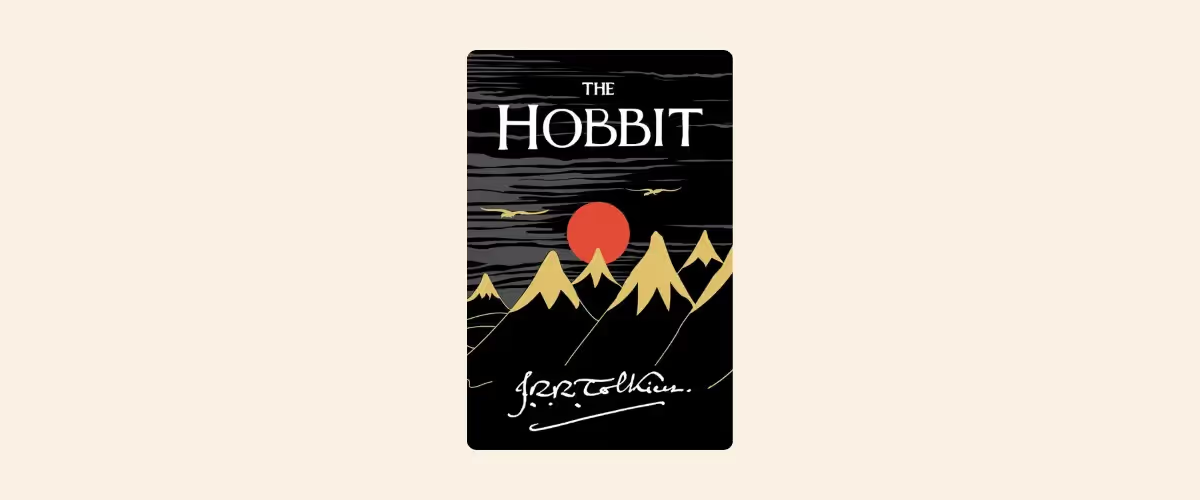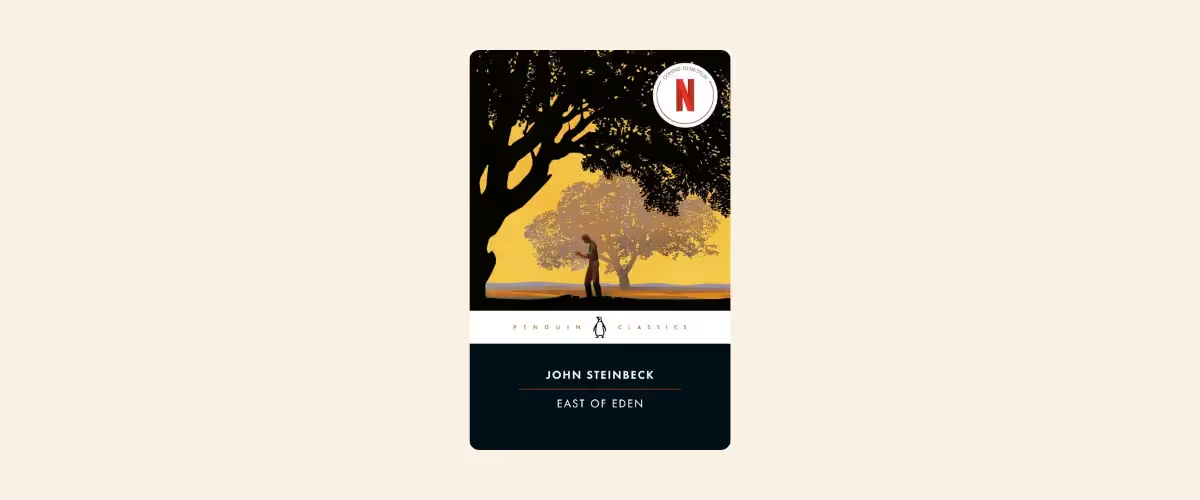It might seem simplistic to ask: What is a story? The answer may seem obvious. A story is an account of something that happened, with a beginning, a middle, and an end. But as a writer, you already know a story is about far more than structure.
Great storytelling helps us make sense of the world, connect with others, and create meaning on the page. Whatever genre of fiction you’re writing, whether it’s for children or adults, understanding what makes something a story is essential to breathing life into your work.
In this article, writing coach Piers Torday takes you through the core elements of story, explaining why the tales we tell are so much more than just leisure or entertainment. By revisiting the classic elements of the art of good storytelling, you can transform the words you write into a compelling novel that will stay with a reader long after the final page.
.avif)
The power of good storytelling
I was seven years old, confined to my bedroom with a miserable childhood illness that made reading or concentrating on anything near impossible. One evening, my dad came in and sat down on the edge of the bed.
Then he asked me a question.
‘What,’ he said, ‘lives in a hole?’
I had no idea.
‘A badger? ‘ I said. ‘A rat? Or a mole?’—perhaps thinking of other books he had shared with me.
‘Aha,’ he replied. ‘No.’
And he produced this beautiful book with hand-drawn pictures on the cover, and opening it, he started to read.
‘In a hole in the ground, there lived a hobbit...’

A story is often the answer to a question you hadn’t asked.
The question in my head at the time was probably: When will I get better? But Dad, as a parental bedtime storyteller, asked a much better question that, once posed, demanded an answer. What lives in a hole?
I swapped my own experience of a boring illness for a Middle-earth treasure quest of bravery, love, and wisdom, and I never looked back. A story can do many things, but what many classics of storytelling share in common is not just their ability to entertain, provoke, or inform—but to comfort.
Why we tell stories
A great storyteller is a voice that rings out around the campfire, telling us not to fear the shadows beyond. It might be a distant, ancient yet timeless voice relaying myths from another era or a ruthlessly caustic commentary on modern mores. What matters is that voice, which, through the pages of a book or the headphones of a device, tells us that we are not alone and that others have felt or feel the same.
—Yann Martel
The power of comfort for me is the fundamental quality of classic storytelling. Is it any wonder we began to do it around a campfire, with the noises and terrors of the wild world lurking in the shadows just beyond?
Our main evolutionary advantage as humans is to be storytellers. All animals communicate in a variety of verbal and non-verbal ways—warning of danger, asking for food, performing a mating ritual, and so on. But they don’t have the same oral tradition of storytelling that we do.
A story is a human device for imposing order on the chaos of the natural world we find ourselves in.
Every time we present a version of ourselves in daily life—in a school assembly, a university interview, or a first date, we are telling a story. When we relay the day’s events to a partner, the weekend to a colleague, a funny thing that happened on the way to the pub to a friend, we are doing the same: a way of engaging, of making emotional connections. And when politicians present a program for change, companies outline their plans, and charities ask for support, they are all telling stories.
A story is often the answer to a question you hadn’t asked.
—Piers Torday
Stories ask us questions about the human experience—who we are, what we can be, how we can change—and by pondering these questions, we learn how to be.
That’s why stories and storytelling are at the heart of what we do at The Novelry. We don’t believe in a format, a template, a boilerplate novel, or grand definitive maxims.
We believe in you, the writer, and your story.
And there’s a reason why.
{{blog-banner-5="/blog-banners"}}
Why are good stories important?
We have always told stories because they make us human. Storytelling is a powerful tool to reinforce and connect our shared humanity. Perhaps the moment our earliest ancestors decided not just to work together to hunt buffalo or mammoths, but to paint that story on the cave wall, too, was the moment we started to realize just how different from those animals we were.
Those simple short stories also reflect moments of profound evolutionary change—learning to draw, use tools, express memories visually, and crucially, the ability to cooperate. In creating these perspectives, we allowed storytelling to flow through other art forms.
Storytelling is our superpower... All the big achievements of humankind, such as flying to the moon, were the result of cooperation between hundreds of thousands of people.
—Yuval Noah Harari
Since the earliest moments of oral storytelling, all stories have had a common thread. Whether it is a tale of how one man’s journey home from war changes him and those he loves, or that of a space station orbiting Earth, revealing a compelling perspective on how humanity has transformed its own planet, stories have always been about acts of change.
We crave stories because they help us navigate the ever-restless seas of life. A good story can reassure the fearful, inspire the bold, or simply inform the curious about changes that have occurred or are to come. Our lives are nothing but change. Storytelling helps us escape, make sense of, and ultimately accept the real narratives we find ourselves entwined in.
Take Jane Eyre, for example. On the one hand, it’s a devastatingly accurate portrait of life in an early nineteenth-century girls’ school (schools are much changed now, thank God). But it’s also an immensely relatable tale of schoolgirl experience with certain themes that have spoken throughout the ages to numerous schoolchildren who have ever felt alone and in need of love.

Storytelling can be one of the most powerful therapeutic tools at our disposal. A novel can offer one of the most intimate experiences of your life—a form of emotional engagement not unlike a beach-blanket conversation with a dear friend.
It can also be more like a movie in your head, like a funfair ride. Sure, you know this ride was designed for maximum impact, but you’re enjoying the thrills and spills.
A fictitious tale—and maybe its underlying message—can take you in all sorts of emotional directions, and new stories are being thought up every day.
A good story can reassure the fearful, inspire the bold, or simply inform the curious about changes that have occurred or are to come... Storytelling helps us escape, make sense of, and ultimately accept the real narratives we find ourselves entwined in.
—Piers Torday
At The Novelry, we want to help get more stories into the world and help each writer forge a deeper connection with their tale and their reader. We want you to follow your creative urge and weave such narratives as you feel compelled to—all through the art of storytelling.
So, what are the keys to writing an engaging story?
Storytelling techniques for greatness
I believe that there is one story in the world, and only one, that has frightened and inspired us, so that we live in a Pearl White serial of continuing thought and wonder. Humans are caught—in their lives, in their thoughts, in their hungers and ambitions, in their avarice and cruelty, and in their kindness and generosity too—in a net of good and evil. I think this is the only story we have, and that it occurs on all levels of feeling and intelligence. Virtue and vice were warp and woof of our first consciousness, and they will be the fabric of our last, and this despite any changes we may impose on field and river and mountain, on economy and manners. There is no other story. A man, after he has brushed off the dust and chips of life, will have left only the hard, clean questions: Was it good or was it evil? Have I done well—or ill?
—John Steinbeck, East of Eden
As Steinbeck so acutely intuits, and as I discovered at an early age with a bedtime story, most timeless stories begin with questions. For example:
- What would happen if the animals did take over the farm? (George Orwell, Animal Farm)
- Why did the second Mrs. de Winter dream of Manderley again? (Daphne du Maurier, Rebecca)
- Why on earth is Cassie writing her story sitting in the kitchen sink? (Dodie Smith, I Capture the Castle)
All these stories, to a greater or lesser degree, conform to Steinbeck’s rule. What does it mean to have a good life, to do well or ill, whether that is through revolution or romance?

Key story elements
Just as we are the main character in our own story, and indeed many of the stories we will tell over our lives, every great story needs a protagonist and a goal. The setting, their relationships, and the theme are all either in service of that objective or illuminated in the storytelling.
The hero
What the hero wants, what happens to them while they try to get it, and how those events change them are the foundations of any story.
The theme
The theme of the story is the protagonist’s, but not always the events. Such events, the events of the plot, may belong to others. But history belongs to the writer, and the protagonist gets to call it, to live how it went and drive what it meant.
The plot
Next, the plot—which is not to be confused with the story, but is rather a key element of the story, its change-driving spine. For example:
Once upon a time there was ___. Every day, ___. One day ___. Because of that, ___. Because of that, ___. Until finally ___.
This template is called ‘the story spine.’ Created by Kenn Adams, it’s a narrative structure that comes from the world of improv theater, which has always understood that story is about change.
A story is a change from an old status quo to a new one, ‘old world’ to ‘new world,’ through action and conflict.
—Pixar’s Rules of Storytelling
Something happens to our hero in pursuit of their goal, and together, the audience feels the same thing: we want to know what happens next. That yearning is universal to our lives as well as fiction, which is why the backbone of a novel has to be the story—above character, style, theme, viewpoint... Above all else.
Can stories change lives?
All this matters not just to you and your readers, but because the answer to this question is yes. They really can change lives. Sometimes, lives even depend upon them.
Clare Mackintosh, one of our writing coaches and the New York Times bestselling author of I Let You Go, recalled from her previous career as a police officer how she witnessed the real-world transformative effects of powerful storytelling at first hand:
When you take a statement from a victim, they don’t tell you the story of what’s happened in a neat ‘beginning, middle, end’ way. They start at the end—with the terrible thing that’s just happened. The story tumbles out, all disjointed and full of emotion and confusion.
As a police officer, your job is to write that story in a way that not only covers all the points required to prove an offence, and in a logical structure, but also to stay faithful to the voice of the victim or witness. Sometimes that statement will be the only piece of evidence a court sees in support of that victim’s story, so yes, it needs to be accurate, but it also needs to be compelling. It needs to enable a jury to step into that victim’s shoes and understand not only what happened, but how it felt.
—Clare Mackintosh
Lives and destinies can hang in the balance at the mercy of a story that is either well or poorly told—and the very best fictional stories can transform them. From the underprivileged child struggling in class who suddenly experiences a transformative breakthrough because they find the right book at the right time, and it speaks to them, to tales of resistance and courage offering hope to the oppressed, the power of storytelling can be monumental.
But a well-told story doesn’t need to be life-changing to be unforgettable, to rise to the moment in our ordinary lives.
What a good book can do: a personal story
Many years after I first discovered what lives in a hole in the ground, my dad became very unwell and was suddenly slipping away from us. I found myself sitting at his bedside when he was really unable to communicate with the illness and the drugs, but he was still alive. I just didn’t know how to reach him.
And then I had an idea, and I went upstairs. I found the very same copy of The Hobbit that he had read to me all those years ago. So I sat at his bedside during his final moments and read: Far over the misty mountains cold...
The power of that book had come full circle for me. There are so many questions about life and death that can never be fully answered, but a timeless story that can be read again and again, no matter the circumstance, is a very good start.
Write your novel with personal coaching from Piers Torday
Are you writing children’s or middle-grade fiction? Join us on a novel writing course at The Novelry, and you can receive expert guidance and personalized feedback from an award-winning published author like Piers as your mentor. Find out more about how you can work one-on-one with an encouraging and insightful writing coach like Piers, and take a step closer to your writing goal.
.webp)
Wherever you are on your journey as a writer, our novel writing courses offer the complete pathway from the idea to ‘The End.’ With personal coaching, live classes, community support, and step-by-step lessons to fit your schedule and inspire you daily, we’ll help you complete your book with our unique one-hour-a-day method. Learn from bestselling authors and publishing editors to live—and love—the writer’s life. Sign up and start today. The Novelry is the famous fiction writing school that is open to all!
.avif)


.avif)

.avif)
